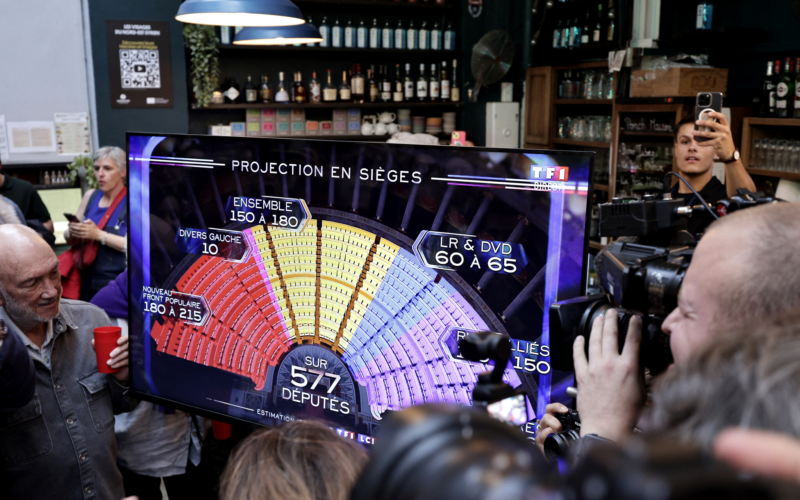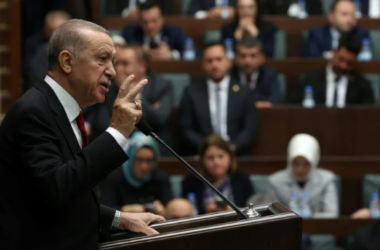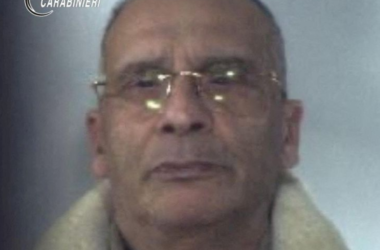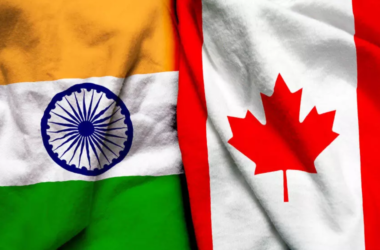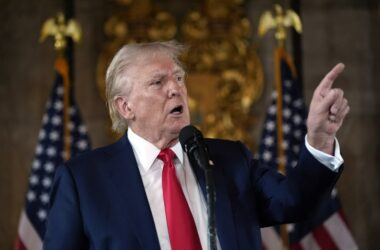Following the final round of France’s legislative elections, projections suggest that the country is headed towards a hung parliament. The left-wing New Popular Front (NFP) emerged as the leading force but without achieving a clear majority, complicating the formation of a stable government.
A projection by polling firm Ipsos, released on the evening of July 7th, indicates that the NFP, a coalition of left-wing parties, is set to win between 177 and 192 seats in the 577-seat National Assembly. This falls short of the 289 seats required for an outright majority. The NFP’s performance, while dominant, leaves it well short of the majority needed to govern without forming alliances or negotiating with other parties.
In contrast, Marine Le Pen’s National Rally (RN), previously anticipated to secure a significant share of seats, is projected to win between 138 and 145 seats, along with its right-wing allies led by Eric Ciotti. This falls below expectations based on earlier polls, which had suggested the RN could become the largest party. The lower seat count reflects strategic voting maneuvers by left-wing and centrist parties, who withdrew candidates to consolidate the anti-RN vote in key constituencies.
President Emmanuel Macron’s centrist coalition, Ensemble (ENS), faced a significant setback, projected to obtain between 152 and 158 seats. Despite the drop, Ensemble is likely to retain its position as the second-largest force in the assembly, contrary to earlier predictions that placed it behind the RN. Macron’s coalition had previously held 250 seats and has struggled to maintain its influence in the current political climate.
Celebrations erupted among left-wing supporters in Place de la République, where the statue of Marianne was illuminated by fireworks. Marianne symbolizes France’s republican ideals of liberty and reason.
Key Party Groups and Their Positions
- New Popular Front (NFP): This newly formed left-wing alliance, consisting of the Socialist, Green, Communist parties, and Jean-Luc Mélenchon’s Unsubmissive France, has taken the lead but lacks a majority. They aim to reverse Macron’s pension reforms and introduce new taxes on individuals and corporations. Despite their strong showing, the coalition is divided internally, particularly regarding the nomination of a prime minister.
Some centrist figures, including former Prime Minister Edouard Philippe, expressed openness to collaborating on a government pact, provided it does not involve working with France Unbowed, which is perceived by many centrists as too radical.
Yael Braun-Pivet, a prominent lawmaker from Macron’s party, underscored the need for a shift in political culture towards greater cooperation across party lines. “The message I’m hearing from the voters is ‘no one has an absolute majority, so you have to work together to find solutions to our problems’,” she remarked on France 2 television
- National Rally (RN): Led by Marine Le Pen, the RN remains a significant force despite not achieving the projected success. Their nationalist and Eurosceptic stance has gained substantial support, but strategic voting against them has limited their representation. The RN is focused on opposing France’s deeper integration into the EU and has a tough stance on immigration.
Considering the results Le Pen remained optimistic, stating, “Our victory has been merely delayed,” and suggesting that the RN is poised for future success.
- Ensemble (ENS): President Macron’s centrist coalition includes his Renaissance party and other pro-European factions like MoDem and Horizons. Having faced a dramatic loss of seats, the coalition is now second-largest, needing partnerships to push through legislative agendas. Macron must navigate this fragmented landscape while appointing a new prime minister to steer the government.
- The Republicans: The centre-right Republicans, led by Eric Ciotti, are forecast to secure between 63 and 67 seats. Ciotti’s controversial alignment with the RN has caused internal strife and opposition within the party, leading to efforts to distance themselves from Le Pen’s hard-right policies.
- Reconquest: A Catholic far-right party founded by Eric Zemmour, Reconquest has a marginal presence, influenced by its radical anti-immigrant rhetoric and recent expulsion of prominent members like Marion Maréchal.
Implications for Governance
The fragmented results are expected to lead to a period of political deadlock, with no clear pathway for stable governance. President Macron will have to appoint a new prime minister capable of navigating this divided parliament. The prospect of “cohabitation,” where the president and the parliament are from different political factions, looms large and could complicate legislative processes.
The complex landscape may impede Macron’s ability to pass reforms and could weaken France’s influence within the European Union. As new elections cannot be called for at least a year, the political dynamics within the National Assembly will be crucial in shaping France’s legislative and policy direction in the immediate future.




